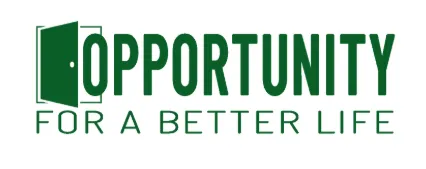Opportunity Pipeline Program
Job Opportunities Prior to Release
Program Goals
Individuals who received job training while incarcerated were significantly more likely to find employment after release
Individuals with job placements arranged prior to release had the highest employment rates among previously incarcerated individuals.
Individuals with job placements arranged prior to release had the lowest recidivism rates.
What Makes OFBL Better?
PEER TO PEER MENTORSHIP
Our program is facilitated by previously released individuals who have found success post incarceration.
TIMING
Our program is completed prior to release so the participant has the necessary tools BEFORE they need them.
At Opportunity For a Better Life, we firmly believe in the potential for personal growth, transformation, and redemption. We strive to break down barriers and reduce the cycle of recidivism by addressing the unique challenges faced by individuals transitioning from incarceration to community life.
Our organization focuses on providing a range of supportive services tailored to the needs of those we serve. We offer educational programs, vocational training, and job placement assistance to enhance employability and foster financial independence. We provide counseling, mentorship, and life skills development to promote personal and emotional well-being, healthy relationships, and effective decision-making. Additionally, we facilitate access to safe housing, healthcare services, and community support networks to ensure a smooth and successful reintegration process.
The pre-release training program will be available to anyone within 6 months of release. The program will require a commitment of 20 hours per week (4 hours per day) over 12 weeks. We have partnered with Goodwill Industries of Central and Northern Arizona in the development of or training materials.
Part 1: General Skills Training
Basic Technology Training
Technology Skills: Basic computer skills, including proficiency in Microsoft Office, email usage, and internet navigation.
Soft Skills Training
Communication Skills: How to effectively communicate in the workplace, including verbal and non-verbal communication.
Conflict Resolution: Techniques for managing and resolving conflicts in a professional setting.
Teamwork: Training on how to work effectively within a team, including collaboration and leadership.
Time Management: Techniques for effectively managing time, including balancing work, personal life, and responsibilities.
Program Support
Mentorship: Regular meetings with mentors for personalized guidance.
Career Services: Ongoing support for job placement and career development.
Part 2: Pipeline Skills Training
Each Opportunity Pipeline will be designed with the business partner and will vary in scope, content and timing.
Community Marketing Partnership Call Center Opportunity Pipeline.
The Community Marketing Partnership pipeline training program is 8 weeks, 4 hours per day. Participants who successfully complete the program will have the opportunity to continue with the company while incarcerated.
1. Introduction to Call Center Operations
Overview of call center industry and career paths
Company policies and procedures
Basic call center technology
2. Communication Skills
Effective communication techniques
Handling difficult conversations
3. Product and Service Knowledge
In-depth product/service training
Troubleshooting and problem-solving
4. Customer Service Excellence
Customer service best practices
Understanding customer needs
Customer service simulations
5. Call Handling Skills
Call flow and structure
Efficiency and productivity
6. Technical Skills and Tools
CRM and call center software
Data entry and documentation
Software and tool troubleshooting
7. Compliance and Quality Assurance
Understanding compliance requirements
Quality assurance processes.
